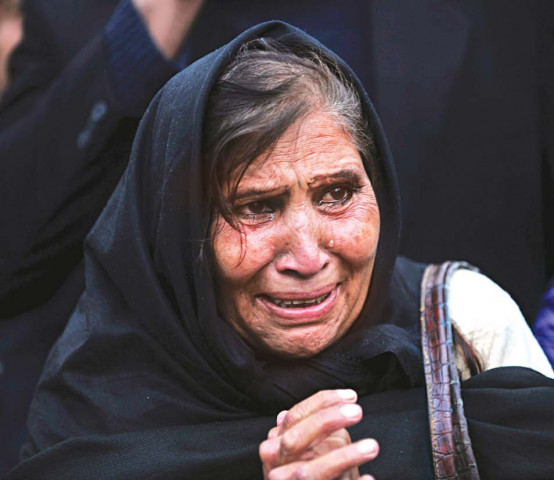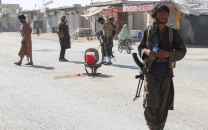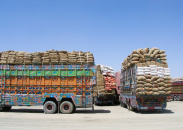Baffled and bruised: Who is to blame?
Civil society and political parties point at ‘faulty security and misled souls’ for the murder of Shahbaz Bhatti.

The second high profile murder in the federal capital in barely two months left the country baffled and even more bruised. With the assassination of Federal Minister for Minorities Shahbaz Bhatti, civil society and leaders seemed clueless over the state of security and were left with only one avenue—to condemn the act.
As different questions boggled the mind of the common man, political parties and civil society representatives condemned the assassination, blaming the “security apparatus and religious fanatics for the act”.
Worker’s Party Pakistan (WPP) in a statement issued here on Wednesday warned of a civil war if those charged with protecting the public peace continued to renege on their basic function.
The WPP said that the assassination of yet another high-level government functionary in broad daylight barely two months after the murder of Punjab governor indicates that after three years of elected rule the government has failed to curb the rising tide of extremism. “Very little internal reform has taken place,” the party said in its statement.
WPP President Abid Hasan Minto, General Secretary Akhtar Hussain and Information Secretary Asha Amirali in a joint statement said that the assassination of Shahbaz Bhatti is yet another attempt to inculcate fear in society and silence the voices of those who call for the supremacy of democratic institutions.
“The so-called ‘war on terror’ is further radicalising our society and increasing the tide of intolerance and bigotry,” the statement said. The WPP leaders noted that ethnic radicalisation continues to intensify in Balochistan where the elected government is helpless to hold the security apparatus to account for extrajudicial killings and kidnappings of political activists and students.
The WPP condemned the ‘petty bickering’ between the two major political parties - the Pakistan People’s Party (PPP) and the Pakistan Muslim League Nawaz (PML-N)- and said that at this juncture both should demonstrate responsibility and take concrete steps to rationalise the operation of all state institutions and cleanse the security apparatus of extremist ideologies.
Awami Party Pakistan (APP) in a statement described the minister’s assassination as an act of fanaticism, terming it “inhumane”. “The religious extremists want to transform the country into a fanatic state,” said a party representative.
Moreover, Hasan Nasir and Ayub Malik of the APP condemned the establishment for using religious bigotry as a tool. This is how voices against discriminatory laws are silenced, said Malik.
They blamed the prime minister for compromising with “fanatics”. “Had Prime Minister Gilani taken stern action against the killer of Salmaan Taseer, this tragedy would not have happened,” he added.
Wasim Wagha, a civil society activist condemned the act, saying that it was an act of the “defeated elements”. “This is against humanity, Islam and human values,” he said.
“There are some elements which are using religion for violence and it has gone up to a dangerous level,” he said.
Wagha added that the government should have ensured the security of the minister who was already on the hit-list of the ‘religious extremists’.
Renowned poet Iftikhar Arif also strongly condemned the “gruesome” murder, saying it was a shameful act for Muslims, Pakistanis and our society.
“It distorts the image of our country and invites condemnation from across the world. It shows that no one is safe and secure in the country,” he said.
Rector International Islamic University Professor Fateh Muhammad Malik said that the act is against Islamic teachings and theory of Allama Iqbal. “I don’t think the persons could be Muslims. It might be a conspiracy against Pakistan,” he added.
Civil society activist Tahira Abdullah refused to comment on the issue. “I am in a state of mourning and grief, what is happening around us? I cannot comment,” she said.
Published in The Express Tribune, March 3rd, 2011.



















COMMENTS
Comments are moderated and generally will be posted if they are on-topic and not abusive.
For more information, please see our Comments FAQ